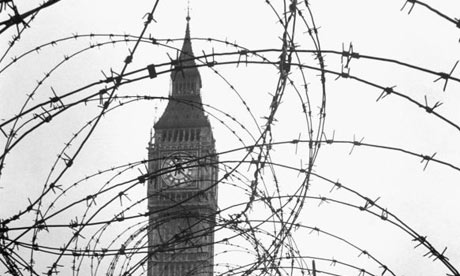Controversial "super-injunctions" highlighted by the Guardian do prevent the media's reporting of proceedings in parliament, the Commons Speaker's legal team have advised in a move MPs will regard as a real threat to free speech.
Lawyers advising John Bercow are understood to have informed the Commons culture, media and sport select committee that the super-injunctions, under which even the reporting of the existence of an injunction is banned, do restrict the right to publish or broadcast what MPs can say openly in parliament.
The guidance contradicts the justice minister, Bridget Prentice, who claimed injunctions such as the one recently used by Trafigura, one of the world's largest oil and commodity trading firms, did not affect reporting rights under the 1688 bill of rights.
The debate was sparked in September when the Guardian was initially prevented from reporting a question by Paul Farrelly, Labour MP for Newcastle-under-Lyme, which revealed the existence of such an injunction. The super-injunction, obtained by libel lawyers Carter-Ruck, not only gagged newspapers from reporting a leaked study which claimed toxic waste dumped by Trafigura on the Ivory Coast was capable of damaging human health, it also forbade reporting of the existence of the injunction and threatened contempt proceedings if Farrelly's question about it was also published.
It was only lifted after news of the injunction spread across social networking websites.
In a written submission to the Commons select committee, Andrew Stephenson, a senior partner at Carter-Ruck, claimed the justice minister was under a "misapprehension". In it, he said there had never been any suggestion the injunctions in the Trafigura case "could or would have the effect of restraining debate within Parliament itself". Under Article 9 of the Bill of Rights 1688, which enshrines MPs' right to free speech , "no court order could have such an effect".
The media's rights to report is a privilege affirmed in the Parliamentary Papers Act of 1840.
The issue in the Trafigura case, Stephenson said "was not whether the court order might have prevented debate in parliament, but whether, as it stood, it had the effect of restraining the Guardian from publishing a report of a written parliamentary question tabled by Paul Farrelly, MP, which is an entirely different matter, governed not by the bill of rights, but by subsequent statutes and by common law, and therefore subject to the jurisdiction of the courts".
Carter-Ruck has written to the Speaker's Office informing them of this. John Whittingdale, chairman of the select committee, said the legal advice from Carter-Ruck raised serious questions. "The right of a newspaper or publication to quote what is said in parliament, without restraint, is fundamental. If that is not the case, it raises serious questions which parliament will need to address".







